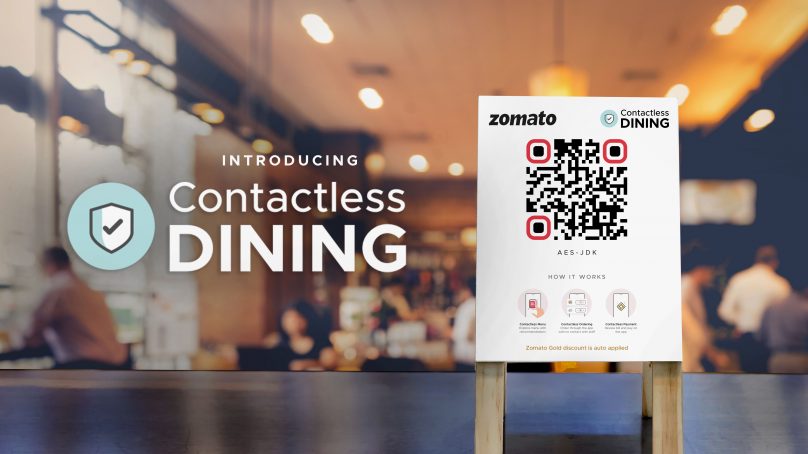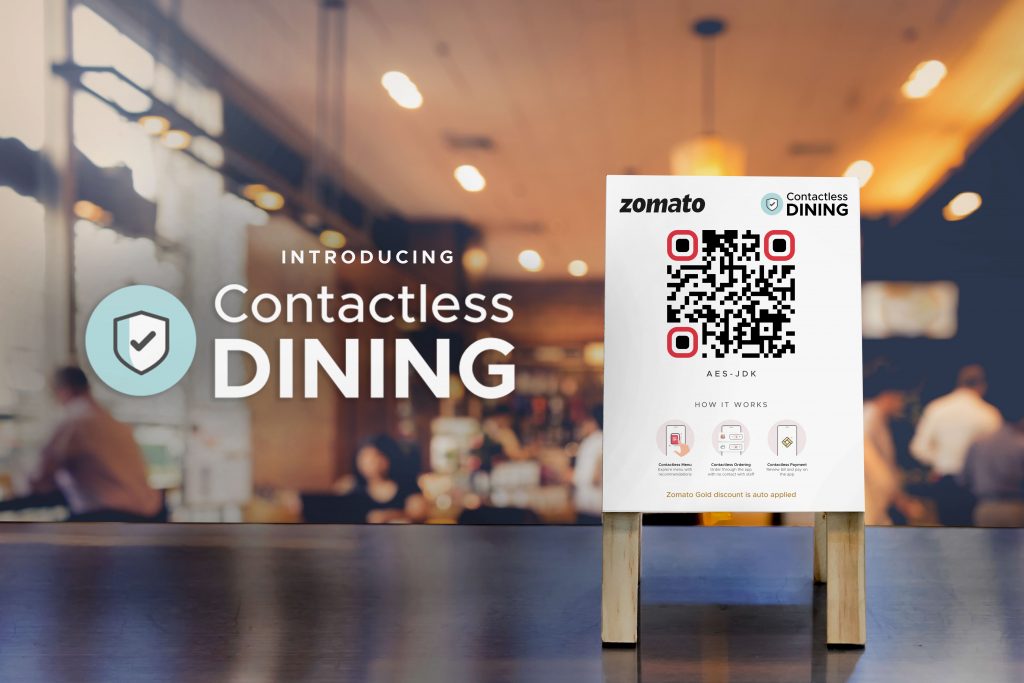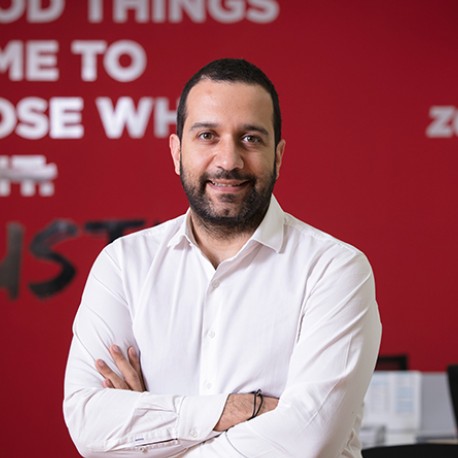
 It is known for a fact that our daily life routines will no longer be the same after COVID-19. The outbreak of this virus will affect everybody’s behaviors, and we will have to adapt gradually.
It is known for a fact that our daily life routines will no longer be the same after COVID-19. The outbreak of this virus will affect everybody’s behaviors, and we will have to adapt gradually.
In line with this disruption, restaurateurs are trying to cope differently. Lately, Zomato introduced the Contactless Dining initiative for a post-lockdown world. HN spoke to Bechara Haddad, Lebanon country manager, to know more about it.
How did this crisis impact your business? and how big did the delivery business grow in the past two months?
All businesses got affected by this crisis, and mostly the F&B industry. The president of the syndicate has previously warned and way before COVID-19, that the F&B industry is bleeding and the situation is really alarming. Once the restaurants closed and before the official lockdown, we directly paused all their campaigns, so this has impacted directly our advertising and media business along with our Zomato Gold program. While everyone thought that the delivery business has peaked during this period, I can assure you that it didn’t, it just dropped by more than 50 percent. Delivery restaurants in a lot of areas were forced to close and to stop their operation based on a decision by local municipalities. Restaurants were also forced to stop their operations at 5 PM so this removed a big chunk of the evening delivery business and late night eats. We should also take into consideration that a lot of families and people were stuck at home and were also cooking at home, to be safe from exposing themselves to the virus whenever they order in. We tried a lot to communicate on safety measures when you order food home. However, people were still afraid in the beginning and avoided food deliveries. On another note, delivering groceries wasn’t as affected as food, as this is something you don’t need to consume directly, and that you can sanitize and wash. Nevertheless, we can say that lately, the consumer behavior slightly changed and people started ordering a bit more.

Bechara Haddad
Why do you believe people in the post-lockdown world will continue to worry about dining out?
We believe that the dining out behavior will change globally. People will be keener on hygiene and social distancing. Our social behavior will change. Users will be cautious and hesitant to go out and dine when the lockdown restrictions are relaxed. Some of their key concerns will be disinfection of the seating area of the restaurant, sanitization of the menu, bill-book touched by multiple customers, restaurant staff compliance with the best practices to maintain safety and hygiene, whether staff members are aware about the symptoms associated with COVID-19. In China, safety assurance, health of the food, cleanliness, trust in the brand are the biggest deciding factors when deciding where to dine out. In a study done by redseer in China, asking people about the key criteria when choosing a restaurant to dine in, 36 percent said safety assurance, 27 percent will look into hygiene and cleanliness. We also saw a huge adoption of our Contactless delivery in other countries, where people were more into ordering from Zomato through its Contactless delivery. We had two directions, whether to passively assess the situation and prepare for when things get better, or proactively solve the potential pain points and make things better. Based on all the above, we looked more into combining safety and hygiene with contactless, and this is how we elaborated more on the idea and came up with Contactless Dining. How we decide where to eat out/order-in is going to change fundamentally in the medium term.
Tell us more about the Contactless Dining concept
In a nutshell, we are looking to communicate to our 1 million users in Lebanon, the sanitary standards each restaurant is taking. The restaurant will have to fill a self-declaration form on Zomato over and above the one where he declares following the WHO best practices. In order for a restaurant to be on-boarded for contactless, it will mandatorily need to comply with a few hygiene practices of the self-declaration product. The required hygiene practices are highlighted below and will be displayed on the restaurant page on Zomato. These include displaying alcohol- based hand sanitizers prominently around the venue and providing a hand washing station to the user (declared by the restaurant). If those are not available, the user will have the opportunity to report it on the app in a post payment survey, and for sure to write a review (updated daily). Frequently cleaning and disinfecting of high touch points such as tables, counter tops, service utensils, door handles, etc. This will also be displayed on the restaurant page and the restaurant will also have the opportunity to add some pictures as a proof (updated daily by the restaurant). The restaurant must ensure that all raw meats, sea food, and vegetables have been cleaned thoroughly before preparation. The staff must be educated about precautions that are necessary to maintain hygiene in the restaurant. Staff, including kitchen staff, have to wash their hands thoroughly multiple times a day (declared by the restaurant). Note that in case any government regulation is promulgated, we make it a mandatory requirement (such as wearing masks by the staff and the users). From a user perspective, we hope we will rebuild the trust and the confidence in dining out. The user will be able to see the restaurants abiding by all of the mentioned sanitary and hygiene procedures. He will also be able to have a full touchless experience at his favorite restaurant. Once in, he will have to scan a QR code, open the digital menu from Zomato, place his order and pay online through our app too. Restaurant offers will be available in the digital menu, along with cooking instructions and customization. He will also have the option to pay for the entire bill or split the payment and pay only for himself.
Will it be available across the MENA region?
It will be available in the countries we are present in the Middle East.
Is it profitable as a new business directive? or how will it impact your revenues?
We have decided to make this new tool free of charge for the restaurants for at least the six coming months. We know how much the F&B industry in Lebanon has been affected lately. As a major player in this ecosystem, we believe we should stand by our partners and do our best to bring back the trust to the industry.
Which market brackets will be most tackled by this innovation? and how do you plan to promote it?
We are planning to reach all types of restaurants, from QSR, snacks, luxury diners, casual diners, and the nightlife industry. This new product will be the future of dining out globally. We never failed in promoting any new product we launched in Lebanon, and with our 1 million active users we believe that Contactless Dining will be one of the most successful products we ever launched in the country that will change the way we eat out.
What other innovations are you working on to cater to the next phase after COVID-19?
We will make sure that the restaurants and our users will have an amazing user experience using Contactless Dining. We will for now focus on making the product flawless and make sure adoption is high. Our focus post-COVID-19 will be to make Contactless Dining the most important product Zomato ever launched in Beirut.
Add to Favorites














